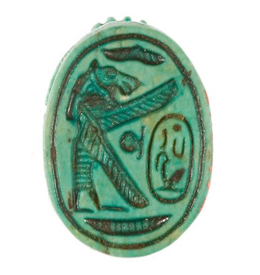
Presenter: Susan Baxt
Discussant: Joshua Levy, PhD, CPsych
Wednesday, September 9, 2020: 7:30 pm – 9:30 pm
TPS Scientific Meeting: Open to Members, Affiliates/Guests, TIP Candidates, and ATPPP Trainees only.
** DISTANCE PARTICIPATION ONLY – This Scientific Meeting is available via Zoom meeting only. Preregistration is required. Please RSVP via email at psychoanalyst@bellnet.ca. Please note that registration closes 48 hours prior to the meeting date.
Beginning with Freud and gathering momentum in the last 25 years, various authors have examined a particular type of block to the analytic process which is apart from a patient’s typical store of resistances. Examples would be the bastion (Baranger, Baranger and Mom), unrepresented mental states (Botella, Bottella; Levine), unmapped mental life (Bergstein), autistic encapsulated parts (Mitrani), encrypted imago (Abraham and Torok). Although each concept describes a split off, unacknowledged sometimes unsymbolized aspect of the patient’s psyche, they also differ in important ways. Further, while many articles have been devoted to the elaboration of such stumbling blocks only glancing attention has been given to the technical issues involved in overcoming the impasse. Following a review of the literature, I will be outlining one theme in an analysis of 12 years duration and presently in a pre-termination phase. I will show how I approached the tyranny in our work of her dissociated paternal imago and what I believe to have been the key moments in my patient’s progress — a clearly defined subset of her dreams and five real life events. None of these incidents were particularly unusual yet I came to realize that they offered us access to this split off material: following our struggle with each, most of the threads of our work which beforehand had been only partially resolved, were addressed and integrated. In the ensuing discussion, I will present thoughts on my identification of and treatment approach to her Gordian knot.
Learning Objectives:
At the end of this presentation:
- Participants will be able to recognize some of the cues to a split off imago that is impacting the psychoanalytic process.
- Participants will have a deeper understanding of the constellation of childhood experiences that lead the patient to hold herself together in this way.
- Participants will see the value of understanding dreams as a thematic group.
Susan Baxt
Sue Baxt is a psychologist in private practice since 1982. She sees adults and adolescents in long and short term psychoanalytic psychotherapy and in psychoanalysis. She also offers family and marital therapy and EMDR. Sue teaches the candidates at the QE and the residents at Ottawa University. Also, since the late 1970’s she has supervised residents and community therapists in short term and open-ended psychodynamic psychotherapy. Were it not for the restrictions stemming from COVID19, she would be very close to finishing her child psychoanalytic training at the MPI!
Joshua Levy, PhD, CPsych
Joshua Levy, PhD, CPsych. is a training and supervising analyst at the Toronto Psychoanalytic Institute, a Faculty, member at the Toronto Institute for Contemporary Psychoanalysis, and Associate Professor Emeritus in the department of psychiatry at the University of Toronto.
He had published papers on psychoanalytic supervision and the learning and teaching of dreams. His yearly workshops focused on a variety of essential psychoanalytic topics.
He is the recipient of the Hans Loewald Memorial Award and the Canadian Psychological Award.
For more information about and for registration in the tps&i Extension Programs, Scientific Meetings, Training Programs, Study and Supervision groups and Special Presentations, please visit our website: torontopsychoanalysis.com or email info@torontopsychoanalysis.com
